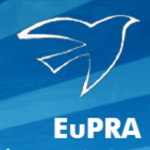The workshop aims at promoting the debates on the topic of forced migration in a European and wider perspective. The migration crisis has been extensively investigated over the last years, through multiple approaches and disciplines. The lack of adequate EU solidarity policies, on the one hand, and the rise of (notably right-wing) populism in several member countries, on the other, have demonstrated how difficult it is to cope with the various dimensions (political, economic, social, humanitarian) of the issue. Additionally, the growth of Search and Rescue operations in the Central Mediterranean, by Frontex, national coast guards, police and hundreds of NGOs, along with — contested bilateral agreements with non-EU countries (e.g. Turkey, Libya, Morocco) have brought down the number of refugees in the short-term but also increased questions of long-term effectivity, as well as ethical, normative and legitimacy arguments. However, and despite this disappointing reality, there is still need and room for discussion and research on the future of the migration policies at the EU and member states level. It is more than ever necessary to understand how the Northern (Germany, France, UK, Scandinavian countries) and the Southern perspective (Central Mediterranean) can combine and how institutional and non-governmental actors canplay different but coordinated roles. In order to avoid ‘Euro-centric’ views the workshop also will look at migration flows beyond Europe – and how they affect our continent. The workshop intends to stimulate the interest towards the topic, by stressing the academic debate and policy discussions, as well as to initiate and support joint research projects on forced migration and extending EuPRA towards a research-based Network and advisory platform with different areas of specialization.
See the programme: http://euprapeace.org/eupra/EuPRA_Paris%20Final%20Programme.pdf

